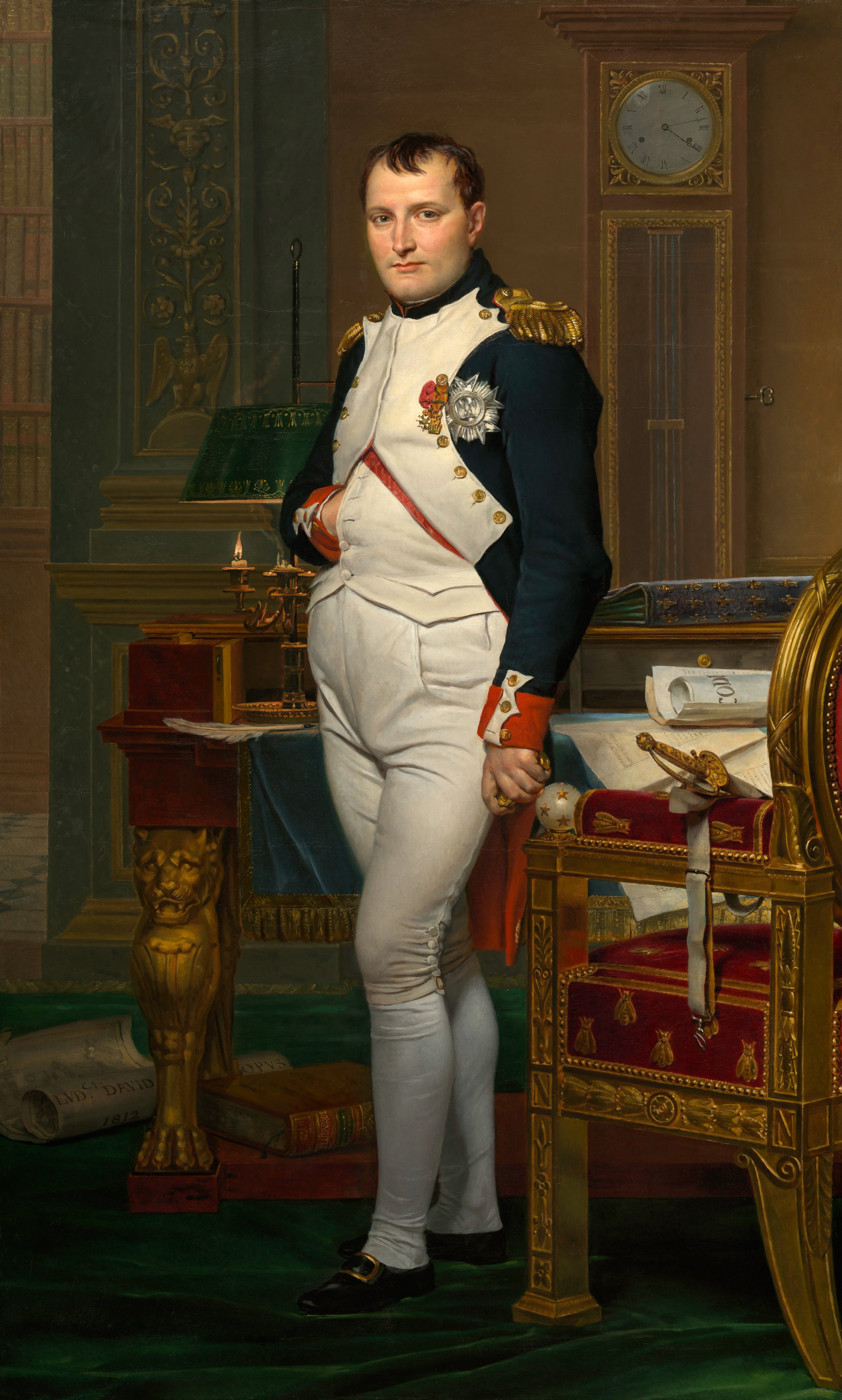Conversations avec General Bertrand à St. Helena
Napoleon Bonaparte Berühmte Zitate
Vor der Schlacht bei den Pyramiden, 21. Juli 1798
Original franz.: "Soldats, songez que du haut de ces pyramides quarante siècles vous contemplent!"
Brief an Talleyrand vom 12. März 1807, zitiert bei Hugo Friedrich Philipp Johann Freiherr von Freytag-Loringhoven: Die Heerführung Napoleons in ihrer Bedeutung für unsere Zeit (1910) S. 27 books.google http://books.google.de/books?id=4MkJAAAAIAAJ&q=Kinderspiel
"Aujourd'hui le sort de l'Europe et les plus grands calculs dépendent des subsistances. Battre les Russes, si j'ai du pain, c'est un enfantillage." - Correspondance (1863) p. 432 books.google http://books.google.de/books?id=z63SAAAAMAAJ&pg=PA432&dq=enfantillage
„Vom Erhabenen zum Lächerlichen ist nur ein Schritt.“
10. Dezember 1812 in Warschau, nach Friedrich Saalfeld: Geschichte Napoleon Buonaparte's. 2. Band. F. A. Brockhaus 1817 S. 477 books.google http://books.google.de/books?id=KOBBAAAAcAAJ&pg=PA477&dq=Erhabenen & 479
Original franz.: "Du sublime au ridicule il n'y a qu'un pas." - Meyers Großes Konversations-Lexikon 1906 bei zeno.org http://www.zeno.org/nid/20006523668
Napoleon Bonaparte: Zitate auf Englisch
Robert G. Ingersoll, The Liberty of Man, Woman and Child
About
The earliest publication yet located of this famous palindrome is in the "Witty and Whimsical" section of The Saturday Reader, Vol. II, No. 30 (31 March 1866), p. 64:
It is said that Napoleon, when asked by Dr. O'Meara if he really thought he could have invaded England at the time he threatened to do so, replied in the following ingenious anagram [sic]: — "Able was I ere I saw Elba." The reader will Observe that it reads the same backward or forward.
Of such attributions to Napoleon, there is little credence, as stated by William Irvine in Madam I'm Adam and Other Palindromes (1987): "The well-known ABLE WAS I, ERE I SAW ELBA, for example, is conveniently attributed to Napoleon, whose knowledge of English wordplay was certainly questionable, at best." There is no mention of such a palindrome in O'Meara's own work, Napoleon in Exile : or, A Voice from St. Helena (1822).
Misattributed
“The great difficulty with politics is, that there are no established principles.”
Napoleon : In His Own Words (1916)
Napoleon : In His Own Words (1916)
Napoleon : In His Own Words (1916)
Variante: It is only by prudence, wisdom, and dexterity, that great ends are attained and obstacles overcome. Without these qualities nothing succeeds.
“A great people may be killed, but they cannot be intimidated.”
Political Aphorisms, Moral and Philosophical Thoughts (1848)
“A good sketch is better than a long speech.”
Un bon croquis vaut mieux qu'un long discours.
Quoted in L'Arche de Noé (1968) by Marie-Madeleine Fourcade, p. 48; this has sometimes also been translated as "A picture is worth a thousand words", though it is not known to be the origin of that English expression.
Attributed
“Posterity alone rightly judges kings. Posterity alone has the right to accord or withhold honors.”
Napoleon : In His Own Words (1916)
“Power is founded upon opinion.”
Quelle: Political Aphorisms, Moral and Philosophical Thoughts (1848), p. 248
Political Aphorisms, Moral and Philosophical Thoughts (1848)
“War is a lottery in which nations ought to risk nothing but small amounts.”
Napoleon : In His Own Words (1916)
“An army of sheep, led by a lion, is better than an army of lions, led by a sheep.”
Attributed to Napoleon in Napoleon (1941) by Yevgeny Tarle, this is a variant of an ancient proverb often attributed to many military and political figures, including Alexander the Great, and the even earlier figure Chabrias (Χαβρίας).
Misattributed
“What is the government? nothing, unless supported by opinion.”
Quelle: Political Aphorisms, Moral and Philosophical Thoughts (1848), p. 242
“Never depend on the multitude, full of instability and whims; always take precautions against it.”
Napoleon : In His Own Words (1916)
“An army ought to be ready every moment to offer all the resistance of which it is capable.”
Napoleon : In His Own Words (1916)
“Greatness is nothing unless it be lasting.”
Political Aphorisms, Moral and Philosophical Thoughts (1848)
“Leave the Artillerymen alone, they are an obstinate lot.”
As quoted in The Dictionary of Military and Naval Quotations (1966) by Robert Heinl, Jr.
Attributed
On board H.M.S. Bellerophon (August 1815)
